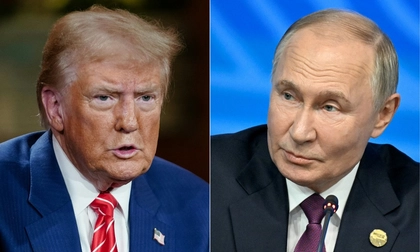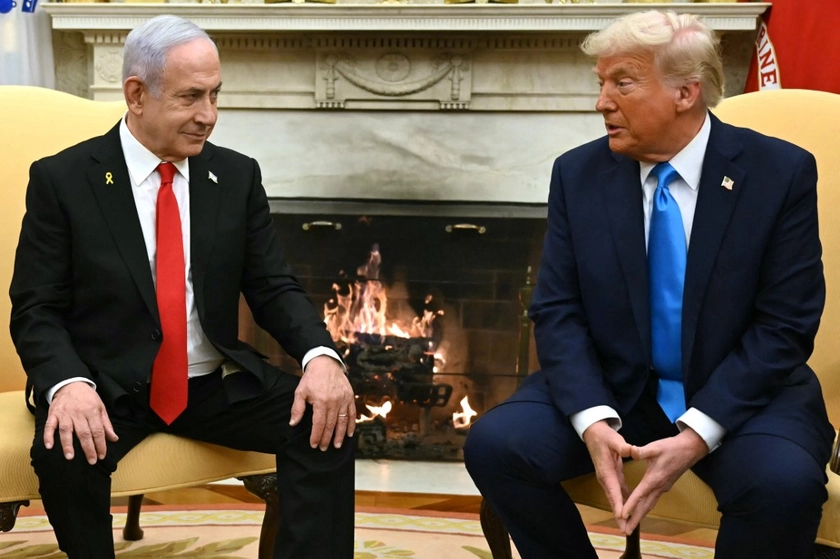US President Joe Biden’s administration said it planned to forgive about $4.65 billion in debt from Ukraine, representing about half of the loans extended to Kyiv in April, 2024.
Technically, Congress has the opportunity to reject that measure, but at a US State Department briefing on Wednesday, spokesman Matthew Miller said he does no expect the legislature to do so.
JOIN US ON TELEGRAM
Follow our coverage of the war on the @Kyivpost_official.
“We have taken the step that was outlined in the law to cancel those loans, provide that economic assistance to Ukraine, and now Congress is welcome to take it up if they wish,” Miller told reporters.
The loan was part of appropriations for Kyiv amounting to approximately $61 billion. Of this package, about $10 billion was allocated to Kyiv as a loan rather than a grant. The legislation stipulated that, effective Nov.15 2024, a week after the presidential elections, the president may forgive up to half of that loan. The rest can also be forgiven if the president at that time should decide to do so.
US Embassy in Kyiv to open its doors again after security measures
Meanwhile, Miller said that the US plans to re-open its embassy in Kyiv on Thursday, Nov. 21, after having closed it a day prior due to security concerns resulting from reports of a Russian aerial strike on the Ukrainian capital.
He noted that the State Department closed the embassy due to a threat described only as “something we are following closely” and that the State Department “takes the safety of its personnel extremely seriously,” and that “Ukraine has been subjected to extremely large-scale air strikes in recent days.”

Russia Presents Demands to US to End War: Capitulation
Biden administration releases some of the last monies it can for Kyiv before Trump’s team takes over
In its final two months of leadership before the team of President-elect Donald Trump and his Republican supporters take over control of both the Oval Office and Capitol Hill, Biden on Wednesday released some $275 million in weapons for the Ukrainian defense, using the presidential draw-down authority, transferring weapons directly from American stockpiles.
The package includes ammunition for HIMARS systems, shells for 155mm and 105mm artillery guns, 60mm and 81mm mortar rounds, drones, Javelin and AT-4 anti-tank systems, and tube-launched, optically tracked, wire-guided (TOW) anti-tank missiles. Small arms and ammunition, explosive munitions, and equipment for chemical, biological, radiological, and nuclear protection will be included in the package,
“The United States will continue to work together with some 50 Allies and partners through the Ukraine Defense Contact Group and its associated Capability Coalitions to meet Ukraine’s urgently needed battlefield requirements and defend against Russian aggression,” the Pentagon wrote in a release.
It was also reported on Wednesday by Agence France Presse (AFP) that Biden had approved the supply of anti-personnel landmines to Ukraine. It marked a policy shift opposed by rights groups, but was triggered by a change in Moscow’s tactics favoring infantry over mechanized units, US Defense Secretary Lloyd Austin said.
“They don't lead with their mechanized forces anymore,” Austin told reporters while visiting Laos. “They lead with dismounted forces who are able to close and do things to kind of pave the way for mechanized forces.”
He said, instead, that Ukraine needs weapons and equipment “that can help slow down that effort on the part of the Russians.”
“More Ukrainian towns are at risk of falling”
“Russia is attacking Ukrainian lines in the east with waves of troops, regardless of the casualties that they’re suffering,” said one official cited by the Associated Press. “So, the Ukrainians are obviously taking losses, and more towns and cities are at risk of falling. These mines were made specifically to combat exactly this,” he added.
More than 160 countries, including Ukraine, have signed the Ottawa Convention that prohibits the use of antipersonnel mines due to the risks they pose to civilians. However, the US and Russia, along with three other members of the nuclear weapons club, China, India and Pakistan, are not signatories.
You can also highlight the text and press Ctrl + Enter











